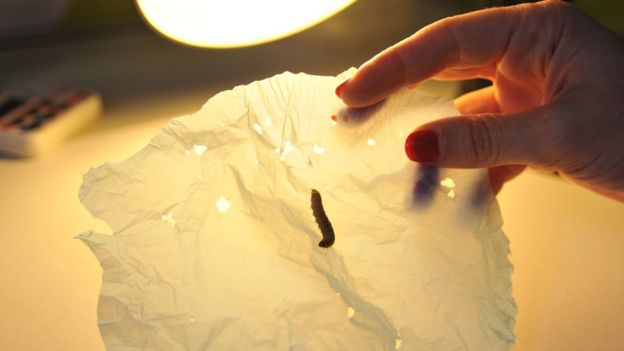Yet again, we find ourselves turning back to “mother-nature” for answers with regards to environmental restoration.
Announced on BBC news only days ago, we’ve now discovered a caterpillar that munches on plastic bags could hold the key to tackling plastic pollution, scientists say.
Researchers at Cambridge University have discovered that the larvae of the moth, which eats wax in bee hives, can also degrade plastic.
Experiments show the insect can break down the chemical bonds of plastic in a similar way to digesting beeswax.
Although in some cases, encountering a plastic-eating caterpillar would be a cause for concern, this story just goes to show how fascinating nature can be!
Usually, an insect that is capable of eating through plastic is a huge worry for homeowners.
For example, when a friend of mine found that her basement was overrun with insects, she had to contact a team of pest control experts to get them under control.
However, if these insects were able to be used in a way that benefits the planet then it would be interesting to see what else the future holds for common pests.
Each year, about 80 million tonnes of the plastic polyethylene are produced around the world.
The plastic is used to make shopping bags and food packaging, among other things, but it can take hundreds of years to decompose completely.
However, caterpillars of the moth (Galleria mellonella) can make holes in a plastic bag in under an hour.
Dr Paolo Bombelli is a biochemist at the University of Cambridge and one of the researchers on the study.
“The caterpillar will be the starting point,” he told BBC News.
“We need to understand the details under which this process operates.
“We hope to provide the technical solution for minimizing the problem of plastic waste.”
Visit the source link on BBC News for more information!


Comments are closed